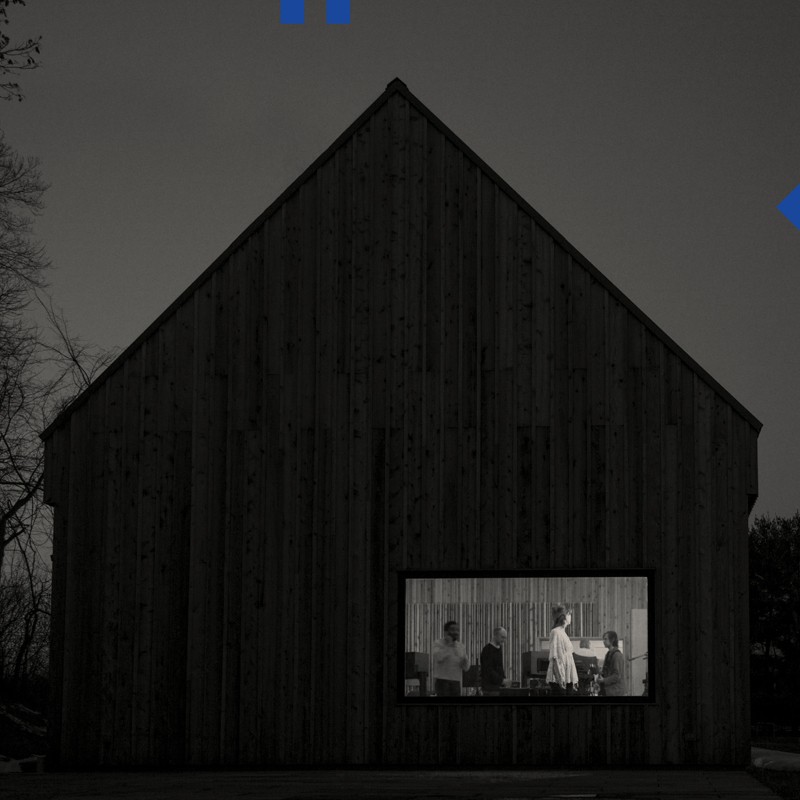Popular Reads
Top Results
Can't find what you're looking for?
View all search resultsPopular Reads
Top Results
Can't find what you're looking for?
View all search resultsAlbum Review: 'Sleep Well Beast' by The National
Change text size
Gift Premium Articles
to Anyone
I
ncreasingly popular and festival-headlining as it may be, United States indie band The National speaks to a very specific group of people.
Vocalist Matt Berninger’s approach to lyric writing involves a lot of playfully mature setups that may sometimes be clandestine in their wordy imagery, but they are direct in serving up the emotionality of a specific demographic — 30- to 40-something middle-class males with a penchant for soul-searching rock.
If Dave Grohl from the Foo Fighters is the guy bros would love to have a beer with, Berninger is the suited guy you’re more likely to finish a bottle of wine with.
The themes in Sleep Well Beast, The National’s seventh and latest album isn’t that far off of previous albums — even from ones 10 years ago.
The whisky-warmed nocturnal longings of now famous lyrics, such as “Fake Empire” from 2007’s Boxer or “Mistaken For Strangers” from the same album finds variety here; but they exist within the same poetic sensitivity that has pervaded Berninger’s lyrics for years. You don’t have to have some maturity-inflicted damage to appreciate the 48-year old’s lyrics, but it helps.
Few other bands soundtrack the entrance into adulthood — the piling bills; the rising of responsibilities; the death of sex; the hated jobs; the corporate careers; gaining new colleagues; losing old friends — as well as The National. This constant attempt at retaining the joy and innocence of the past and conciliating these with the blessings of the present (children, contentment, hindsight) permeates the band’s records with unbridled grace.
Sleep Well Beast, like all of the band’s albums, isn’t just about the lyrics, there’s an impossible-to-ignore amount of honesty here that is brave and more brazen than ever before. Berninger has gone on record to stay that while his own marriage to Carin Besser (who co-wrote a lot of the lyrics) is intact, Beast conveys the perspective of people in a disintegrating relationship — “marriages falling apart,” in his words.
Fittingly, the electronic elements found here are the most obvious sonic changes. They framework the words and melodies with hum and static that are sometimes peaceful but oftentimes subtly disquieting. The drumming — by Bryan Devendorf — remains impeccable. Soft percussive clicks and synth permeate the songs, blanketing Berninger’s famous baritone.
Unsurprisingly, these new elements operate with confidence. The record opens with “Nobody Else Will Be There,” a prosaic piano-and-electronic-percussion-drive track which finds a weary-voiced Berninger intoning a devastating prelude to a beautifully grim record.
The instruments bounce off of each other equally gracefully throughout. Obvious single “Day I Die” is a classic National rocker — and a sure-fire festival pleaser — which finds galloping drums pulse alongside Berninger’s instantaneous melodies, letting his ego do the talking.
“I don’t need you, I don’t need you/ Besides I barely ever see you anymore/ And when I do it feels like you’re only halfway there/ Young mothers love me even ghosts of/ Girlfriends call from Cleveland/ They will meet me anytime and anywhere,” he intones, exploding with devastating indie rockstar honesty before coming down with the self-humbling “The day I die, the day I die/ Where will we be?/ The day I die, the day I die/ Where will we be?”
That same brazenness makes a few appearances. The patiently paced “I’ll Still Destroy You,” offers a lot of guitarists Aaron and Bryce Dessner’s synthesizer mood-setting ambience.
The experimental nature gets more apparent as the record climbs toward its conclusion. “Guilty Party” is a classic National sad, mid-tempo rocker punctuated with patient pianos and clanging percussion in its start; the gently-moving “Dark Side of The Gym” finds 80s electronic piano leaning onto crunchy drums; while the title track is where all those sonic flourishes take center stage, blipping and squeaking between speakers.
The definitely-will-be-a-soundtrack-for-some-movie glory of “Carin at the Liquor Store” might come closest to feeling auto-piloted, but that doesn’t mean it isn’t immeasurably pretty in its sorrow.
At this point, it feels impossible that The National is able to make a “bad” record, “not as good as...” perhaps, but the stride the band hit with its third album (2005’s Alligator, though some may argue that it happened already with 2003’s Sad Songs For Dirty Lovers) feels like an infinite well. The instrumentations — complex yet accessible — contrasted with Berninger’s melodic sensibilities — heavy yet retaining a pop heart — endures them to a lot of ears.
Sleep Well Beast is at once restrained and explosive. Where it sits in ranking within the band’s canon, matters little. In and of itself, it is an unforgettable experience.











